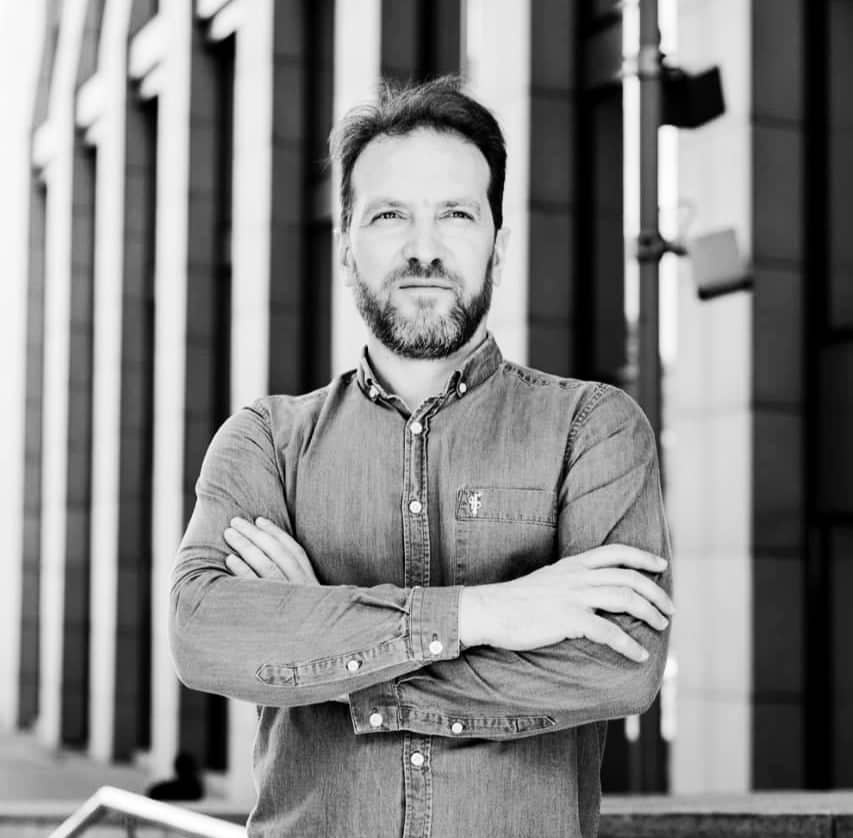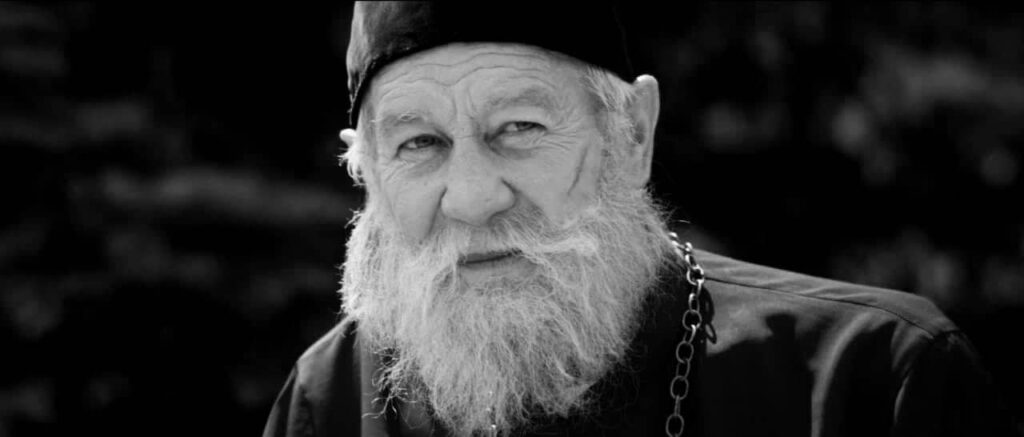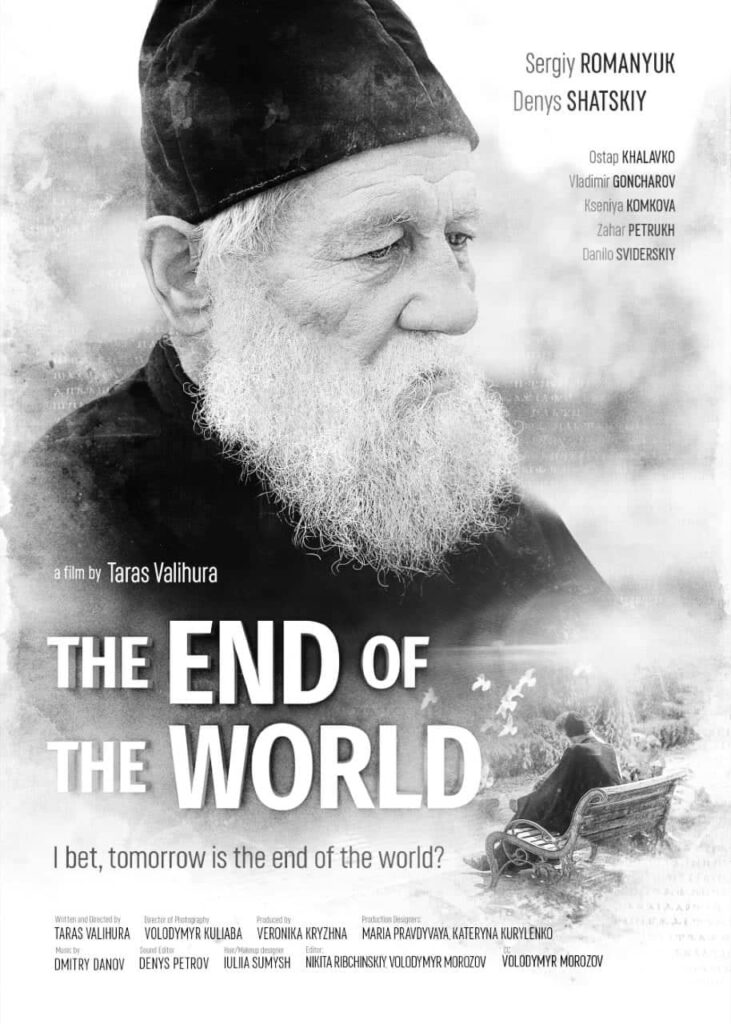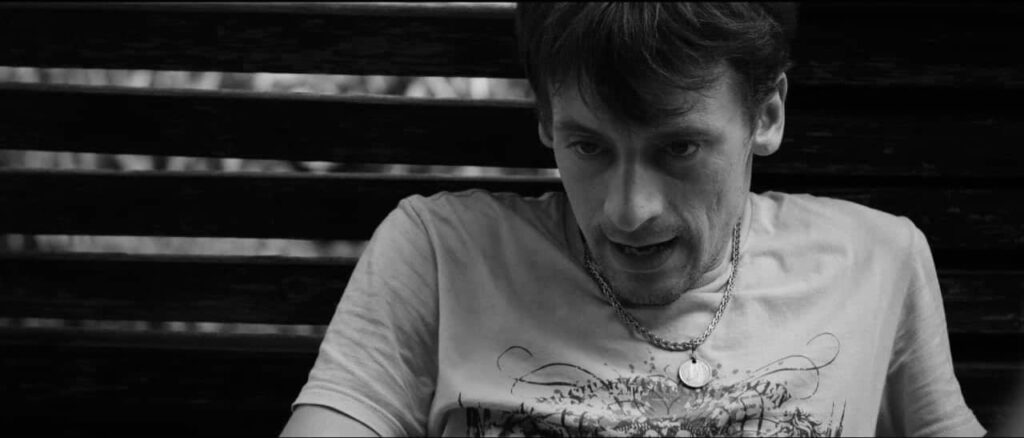
-Who is Taras Valihura?
Taras Valihura is a fanatically creative person who balances the creation of a director, screenwriter and actor. In fact, it is one whole, and without another component it is impossible. When creating a script, I think, among other things, whether it will be convenient or interesting for an actor to play this role. In acting (not to the detriment of the result), I also get involved both as a director and as a screenwriter, that is, it contributes to the factor not only of my role, but also how it will look in the general context. And when the director asks to do something that is more than what was planned, I agree and tell the director “I am the director myself, so I want not only my role, but also the entire film to be of high quality.” My first university education is a psychologist. And when there was a master class with a director, who is also a psychologist by first education, I approached him after the meeting and asked “Is it true that psychology also hinders you in directing?” He agreed 🙂 In fact, it passes with time, and if you don’t try to be an author and a psychologist at the same time, you can make a good movie 🙂 Some psychological knowledge in a limited amount can help make the plot or character deeper.

-What inspired you to become a Filmmaker?
Having no education at that time, I was lucky enough to get on the set. And in this case, two options are possible, whether you are not interested in meeting with it again, or this sphere fascinates you and never lets go. I never saw the first version 🙂 I liked it, and I started to get to shootings more often. Over time, I grew up to the lead role in a short film. I was preparing, and on the set I asked the director about the motives for some of my character’s actions, offering several options. The director told me not to overload my head and make it simpler. As a result, that scene did not turn out very well. From the finished material, I edited a video clip for my music group, in which I played at the time. For this, I had to learn how to mount. And then I realized that if I were a director, I would shoot differently. In addition, at that time I was already lucky enough to personally observe how very cool actors work, including well-known Hollywood names – and the virus of the magic of cinema took root in me very deeply.
In fact, I realize that I have been on the road to becoming a director all my life. From the first grades of school, I already tried to write something – first fairy tales, then detective and fantastic stories. In the future, it helped me learn to write scripts more easily. When I became an adult, I started taking pictures. It gave an understanding of lighting, angles, composition. Then he started playing the drums, which made it possible to better understand the music and feel the dynamics of editing.

-Do you think the cinema can bring a change in the society?
Cinema changes society. And in a bad way and in a good way. If someone manipulates an entire nation for tens of years, and imposes the opinion that it is good to be a cannibal, the entire nation becomes cannibals. This is what happened to Russia. Almost every film contained a grain of chauvinism, hatred of Ukrainians and Western countries. And when Russia once again started a war of occupation against Ukraine (which it has done from time to time for 400 years) – most Russians began to rejoice in the killing of civilians, rape, torture and looting. Wives in their correspondence encourage men to commit rape and looting, and soldiers proudly post videos of torture of prisoners of war, civilians, and rape of minor children in front of their fathers, or mothers in front of minor children, on the Internet. And such a result is also thanks to the cinema.
And in a good sense – if a person regularly watches high-quality, spiritually deep films with eternal values, then such values can greatly affect his worldview. An honest film is, in a good sense, a fairy tale that fascinates the viewer, attracts or repels with the atmosphere, creates for the viewer a desire to imitate the main characters, with the help of the plot and emotions – to subconsciously positively perceive the idea of the film.
Another question is whether future generations will watch movies. Already now cats or some obscenities in Tik-Tok collect more views than classic movies. Like in the my film – the amount of time plays a significant role in forming the beliefs of a mature personality. This is the time for reading books, talking about real values with parents, teachers and mentors. And to watch movies. On average, a full-length film is an hour and a half, and a Tik Tok video is several minutes.
It is easier to quickly find a couple of minutes to watch hype videos on social networks, than to allocate several hours (taking into account the way to the cinema) to perceive, for example, a serious drama. And it is better if it will be a cinema itself, because on the Internet the film can be paused, on television the film is interrupted by advertisements, and only in the cinema does the director’s idea move as the director intended, because this is how the film has the most effective effect on the viewer and conveys its main message message.

-What would you change in the world?
At a time when a brutal war is going on in my country and the enemy sets itself the task of committing genocide – I begin to look at the world differently. I understand that security at all levels is a naive illusion. That one sick person can endanger the lives of almost eight billion people, and no one, no world security organization, no country, but ourselves can stop it. It’s like leaving a rape victim to deal with her armed rapist on her own, given that she has to act only within the law.
At such moments comes the understanding that religion can be a tool of enemy special services to promote genocide. Сomes the Understanding that values can be speculated on, and their effect can be changed to the opposite. So I would like to see less hypocrisy, lies, corruption, and bureaucracy in the world. So that rights and obligations are not only on paper. So that people learn to love themselves and respect others. For the law to work, and justice to be its highest value. So that parents love their children and spend enough time with them, because most problems are caused by a lack of love and respect. For people to be responsible for their actions.
But wise people say – if you want to change the world – start with yourself. I once formulated for myself a formula of thinking that creates corruption and other evils: “In general, it is forbidden, but I can do it a little.” Therefore, it will be much more effective when not the environment and the law will try to change or punish a person, but the person himself will be a fair judge for himself. And for this, she needs to be properly educated. It is precisely this function that art, including cinema, should perform to a certain extent. I try to live according to the principle – act honestly (justly, according to the law, humanely), and demand it from others.
-Where do you see the film industry going in the next 100 years?
From time to time I teach some educational subjects in the field of film. And I have my own author’s course on revolutions in cinema. So, one of the latest revolutionary events in film production is the emergence of streaming platforms such as Netflix, HBO, Amazon. The main value of these platforms for cinematography is that they have the opportunity to create their own product, and to focus primarily not on profit, but on making the material itself interesting. Therefore, there is no need to make compromises between profitability and a winning dramatic decision. In the past, mainstream cinema in most cases chose the side of profitability, and as a result, not only the plot line, but also the idea of the work could lose. Interesting ideas that did not promise extra profits usually could not find financing, and were not filmed. But we know exceptional examples in history, when films in the financial sense turned out to be unprofitable, but at the same time became world classics.
In addition, cinema, which emphasizes profitability, is usually more stereotypical and does not allow experiments. So I believe that thanks to streaming platforms, cinema will develop precisely in the direction of a more interesting plot, winning drama, and bold directorial decisions.
